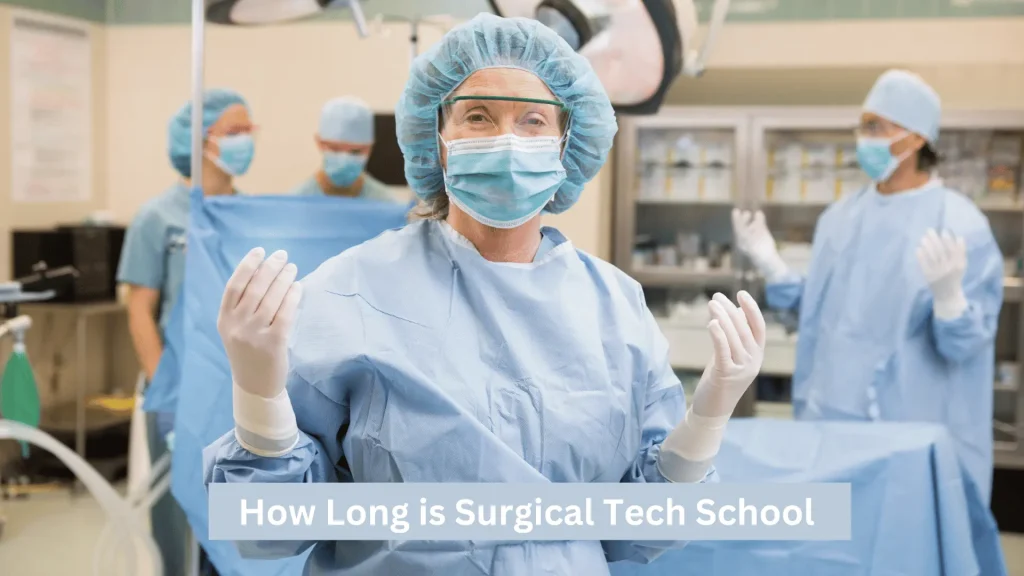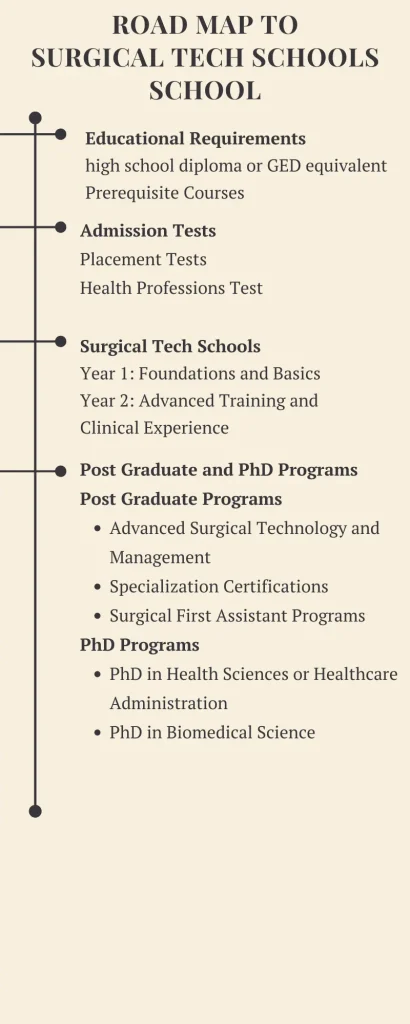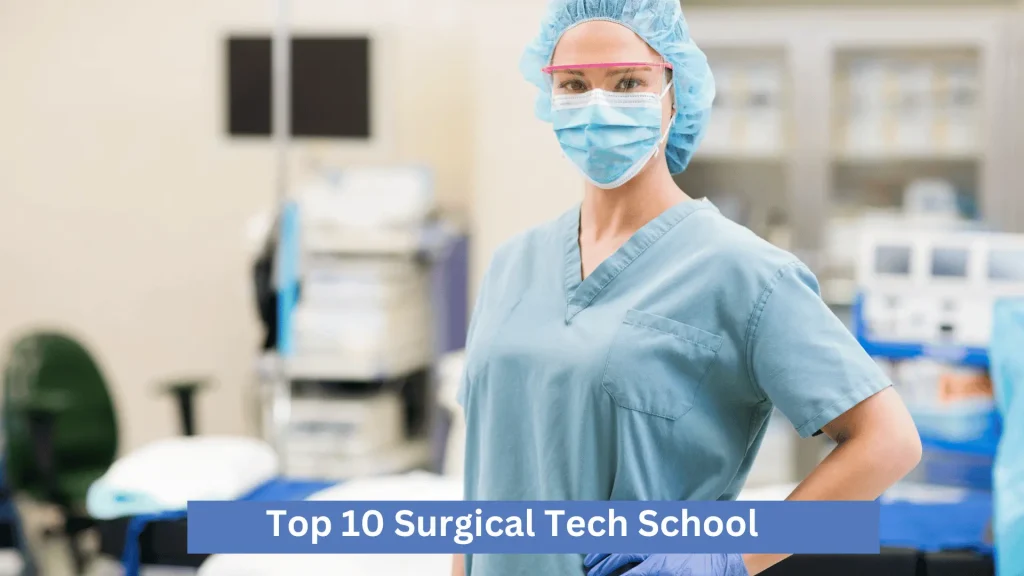How Long is Surgical Tech School
How Long is Surgical Tech School? Surgical tech programs typically take between 12 to 24 months to complete, depending on whether you pursue a certificate, diploma, or associate degree. These programs provide essential skills and knowledge for a successful career as a surgical technologist.
What is Surgical Tech School
Surgical tech school is a specialized educational program that trains students to become surgical technologists. These programs cover a range of topics, including surgical procedures, sterilization techniques, anatomy, and patient care. Students learn through a combination of classroom instruction, laboratory practice, and clinical experience in hospitals or surgical centers.

Attending surgical tech school prepares students for a critical role in the operating room, assisting surgeons, nurses, and other medical professionals during surgical procedures. Graduates are equipped with the skills necessary to maintain sterile environments, handle surgical instruments, and ensure patient safety, making them valuable members of the healthcare team.
How Long is Surgical Tech School
Year 1: Foundations and Basics
In the first year of a surgical tech school undergraduate program, students focus on foundational knowledge and basic skills. Courses typically include anatomy and physiology, medical terminology, and introductory surgical technology. Students also learn about infection control, sterilization techniques, and basic patient care. Lab sessions and simulations provide hands-on practice with surgical instruments and equipment.
Year 2: Advanced Training and Clinical Experience
The second year delves into more advanced topics and practical experience. Students study surgical procedures, pharmacology, and surgical microbiology. They participate in clinical rotations, gaining real-world experience in operating rooms under the supervision of experienced surgical technologists and medical professionals. This year focuses on honing technical skills, understanding complex surgical procedures, and developing teamwork and communication skills essential for the operating room environment.

How to Enter Surgical Tech School
Educational Requirements
High School Diploma or GED: Applicants must have completed high school or obtained a General Educational Development (GED) certificate.
Prerequisite Courses: Some programs may require completion of courses in biology, chemistry, and mathematics.
Minimum GPA: A minimum grade point average (GPA) may be required, often around 2.5 or higher.
Entry Tests
Placement Tests: Some schools may require placement tests in subjects like math and English to assess the applicant’s readiness for the program.
Health Professions Test: Certain programs might require tests like the Health Education Systems, Inc. (HESI) exam or the Test of Essential Academic Skills (TEAS).
Application Process
Application Form: Fill out and submit the application form available on the school’s website or through their admissions office.
Transcripts: Provide official transcripts from high school and any post-secondary institutions attended.
Personal Statement: Write a personal statement or essay detailing your interest in the surgical tech program and career goals.
Letters of Recommendation: Submit letters of recommendation from teachers, employers, or healthcare professionals.
Interview: Some programs may require an interview as part of the selection process.
Financial Aids
Federal Financial Aid: Complete the Free Application for Federal Student Aid (FAFSA) to determine eligibility for federal grants, loans, and work-study programs.
Scholarships: Apply for scholarships offered by the school, professional organizations, or external entities specifically for surgical tech students.
Grants: Look for state and federal grants, such as the Pell Grant, which do not need to be repaid.
Student Loans: Explore federal and private student loan options to help cover tuition and other expenses.
Work-Study Programs: Participate in work-study programs that provide part-time employment to help pay for educational costs.
Employer Sponsorships: Some employers offer tuition assistance or reimbursement programs for employees pursuing education in fields like surgical technology.
Post Graduate and PhD Programs for Surgical Tech School
Post Graduate Programs
Advanced Surgical Technology and Management: Aimed at surgical technologists seeking leadership roles, focusing on advanced surgical techniques, healthcare management, and leadership skills.
Specialization Certifications: Certifications in specialized areas such as cardiovascular, orthopedic, or neurosurgical technology.
Surgical First Assistant Programs: Programs that train surgical technologists to become first assistants, providing more advanced surgical care and assisting directly in surgeries.
PhD Programs
PhD in Health Sciences or Healthcare Administration: While not specific to surgical technology, these programs are suitable for surgical technologists interested in research, academia, or high-level administrative roles within healthcare settings.
PhD in Biomedical Science: Focused on research and development in medical technologies and procedures, this program can be relevant for surgical technologists aiming to contribute to advancements in surgical practices and equipment.
Top 10 Surgical Tech Schools

Mayo Clinic College of Medicine and Science
Location: Rochester, MN
Highlights: Offers extensive clinical training and hands-on experience at the renowned Mayo Clinic facilities.
University of Cincinnati
Location: Cincinnati, OH
Highlights: Offers a comprehensive program with a strong focus on clinical practice and job placement support.
Surgical Technology Program at St. Luke’s College
Location: Sioux City, IA
Highlights: Small class sizes and a high certification pass rate.
Madison Area Technical College
Location: Madison, WI
Highlights: Known for its strong clinical partnerships and high job placement rates.
Concorde Career College
Location: Multiple campuses (e.g., Dallas, TX; Memphis, TN)
Highlights: Offers a variety of healthcare programs with a strong emphasis on hands-on training.
Herzing University
Location: Multiple campuses (e.g., Birmingham, AL; Minneapolis, MN)
Highlights: Accredited programs with flexible scheduling options for students.
Pima Medical Institute
Location: Multiple campuses (e.g., Denver, CO; Houston, TX)
Highlights: Offers a comprehensive surgical technology program with extensive hands-on training.
Eastwick College
Location: Ramsey, NJ
Highlights: Provides a focused surgical technology program with strong clinical partnerships.
Keiser University
Location: Multiple campuses (e.g., Fort Lauderdale, FL; Orlando, FL)
Highlights: Offers a well-rounded program with a strong emphasis on clinical experience.
Gwinnett Technical College
Location: Lawrenceville, GA
Highlights: Known for its high certification exam pass rates and excellent clinical training opportunities.
Factors Affecting the Length of Surgical Tech School
Type of Program: Certificate and diploma programs typically take 12-18 months, while associate degree programs usually require 24 months to complete.
Full-Time vs. Part-Time Enrollment: Full-time students can complete the program faster than part-time students.
Prerequisite Coursework: Some programs require completion of prerequisite courses before entering the core surgical tech curriculum, potentially extending the total time.
Clinical Requirements: The amount and scheduling of clinical rotations can affect the program length, as these hands-on experiences are crucial for graduation.
School Schedule: Some schools offer accelerated programs, while others follow traditional academic calendars with breaks, impacting the overall duration.
State Regulations: Different states have varying requirements for surgical tech programs, which can influence program length.
Transfer Credits: Students with prior college credits or relevant experience may be able to complete the program faster by transferring credits.
Program Format: Online or hybrid programs might offer more flexible pacing options compared to traditional in-person programs.
Institutional Policies: Each school has its own policies regarding program completion timelines, including maximum allowable time to finish the program.
Student’s Personal Commitments: Work, family, and other personal responsibilities can influence a student’s ability to complete the program within the standard timeframe.
Final Verdict
In conclusion, how long is surgical tech school varies based on program type, enrollment status, and individual circumstances. Understanding the educational requirements, application process, and financial aid options can help prospective students make informed decisions and successfully embark on a rewarding career as a surgical technologist.
FAQs
1. What are the admission requirements for surgical tech school?
To be admitted, you generally need a high school diploma or GED, possibly with specific prerequisite courses. Some programs also require placement tests, letters of recommendation, and a personal statement.
2. How long does it take to complete a surgical tech program?
The length of surgical tech programs varies. Certificate and diploma programs typically take 12-18 months, while an associate degree can take about 24 months to complete.
3. What is the difference between a surgical tech certificate and an associate degree?
A certificate or diploma focuses on core surgical tech skills and can be completed in less time, while an associate degree offers a broader education, including general education courses, and may provide more job opportunities.
4. What financial aid options are available for surgical tech students?
Financial aid options include federal grants (like Pell Grants), scholarships, student loans, and work-study programs. Be sure to complete the FAFSA for federal aid and research additional scholarships specific to surgical tech.
5. What job opportunities are available after completing surgical tech school?
Graduates can work as surgical technologists in hospitals, surgical centers, and clinics. They assist surgeons during operations, manage surgical instruments, and maintain sterile environments. Advanced certifications can lead to roles as surgical first assistants or in specialized surgical fields.
